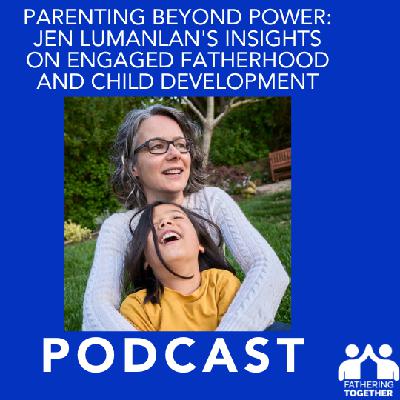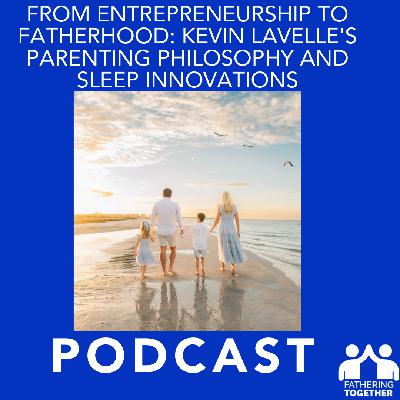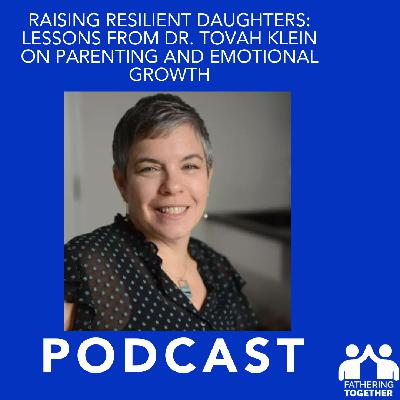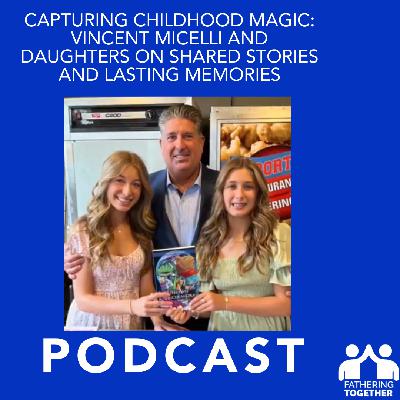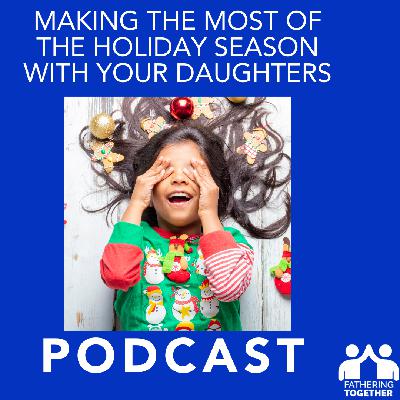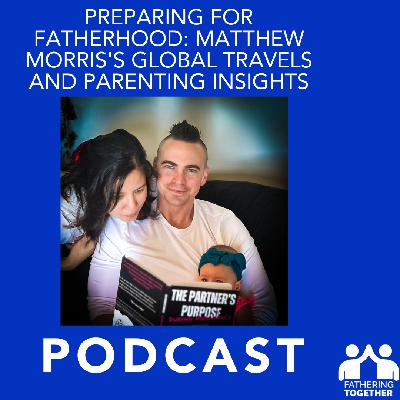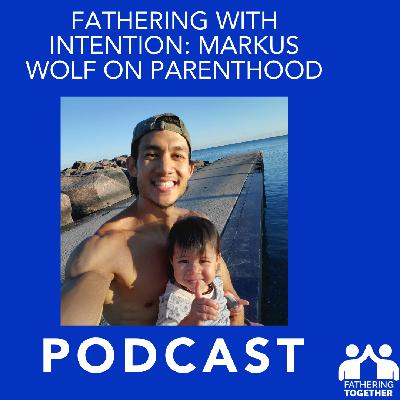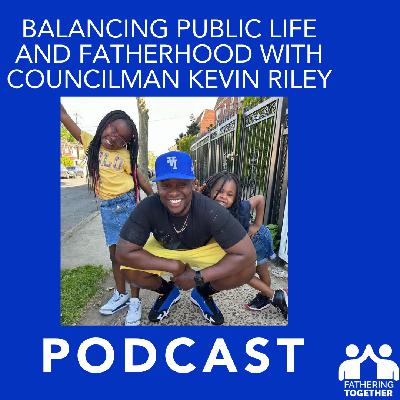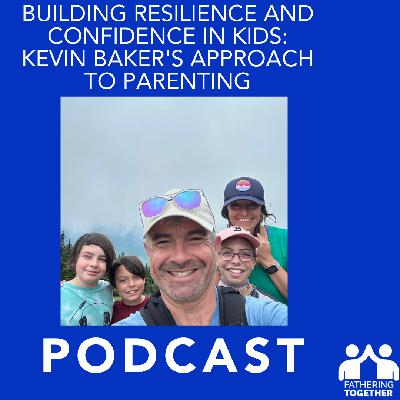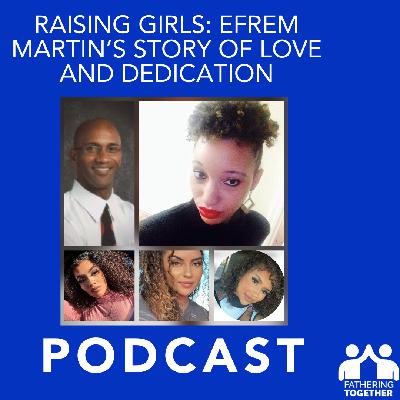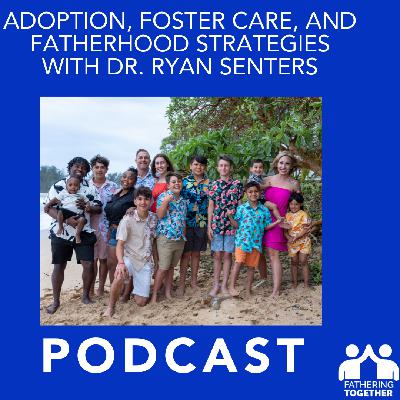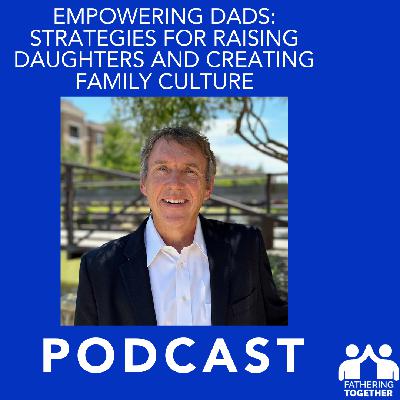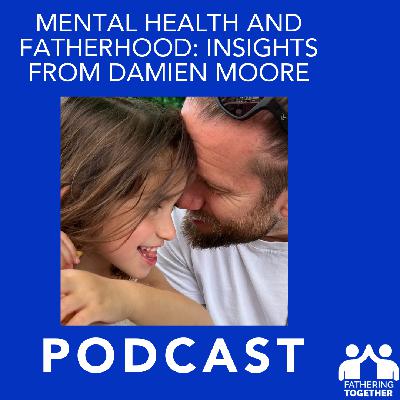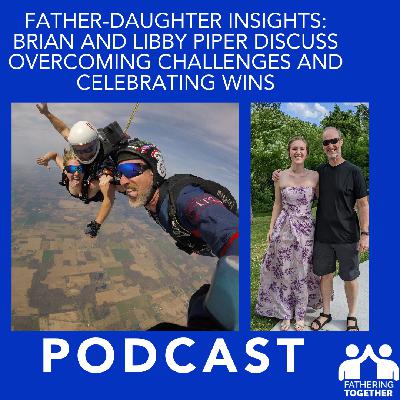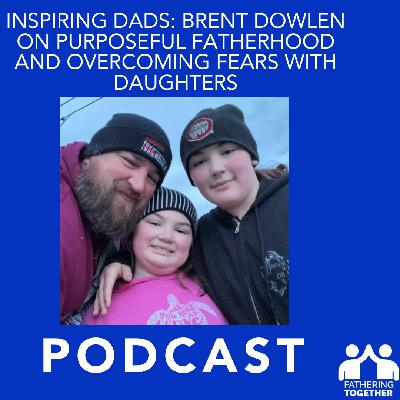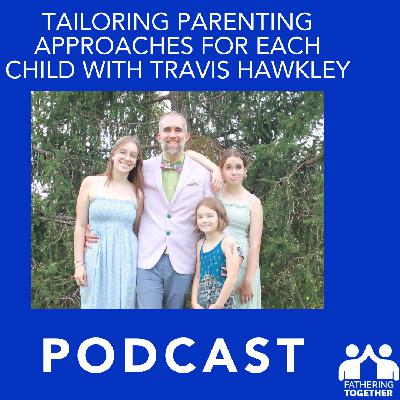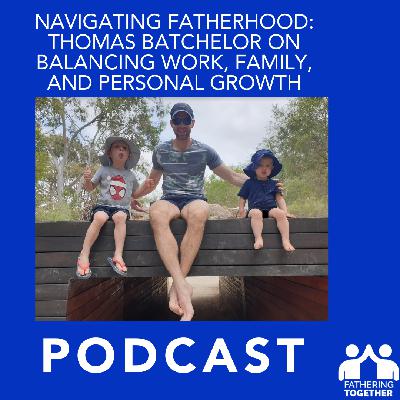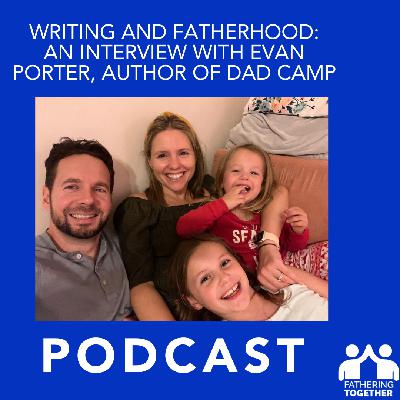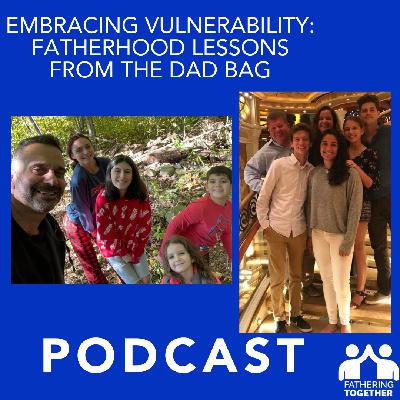Parenting Beyond Power: Jen Lumanlan's Insights on Engaged Fatherhood and Child Development
Description
An Educational Journey Turned Parenting Mission
Jen Lumanlan’s shift from a sustainability consulting career to a focus on parenting wasn't incidental. After grappling with the challenges of raising her own daughter, she realized that academic research on child development could serve as a guiding light. This led her to pursue master’s degrees in psychology and education, and subsequently, to the creation of her podcast and book. Her primary goal? To leverage her learnings to support other parents facing similar challenges.
Challenging Conventional Discipline
Understanding the Power Dynamics at Play
At the heart of Jen's approach is the critique of conventional discipline methods such as timeouts and consequences. According to Jen, these methods often perpetuate harmful power dynamics. They emphasize a power-over relationship, where the authority figure (the parent) uses their power to correct or control the child. These traditional methods can breed resentment and a lack of genuine understanding.
Exploring Alternative Strategies
The Shift From Control to Collaboration
So, what can parents do instead? Jen advocates for strategies that satisfy both the parent's and the child's needs, fostering a power-sharing relationship. For example, during conflict, she suggests addressing the situation outside of the moment of crisis. Proactive discussions about recurring issues like tooth brushing or bedtime can pave the way for more harmonious solutions. By understanding and meeting each other's needs, both parties can find agreeable strategies, reducing resistance and conflict.
Identifying and Meeting Needs
The Two-Way Street of Parenting Needs
Parents often neglect their own needs in the face of their child’s demands, but Jen emphasizes that both parent and child have valid needs. Strategies should aim to fulfill both. She introduces the concept of "cherry needs" — the most critical needs that recur for both parents and children. For instance, a child’s need for autonomy can be met with choices that do not compromise the parent’s essential needs, such as brushing teeth in a different room.
Problem-Solving in Real-Time
Navigating Tantrums and Meltdowns
Tantrums and meltdowns are common challenges, and Jen offers peace and empathy as the best tools. Understanding the underlying needs that prompt such behaviors and addressing them proactively or with empathetic responses in the heat of the moment can defuse tension. Validating the child’s feelings and needs even during a meltdown can lead to quicker resolutions and more trust.
Shifting Dynamics with Teens
It’s Never Too Late to Transform Relationships
Parents of older children might assume it's too late for change, but Jen underscores that it's never too late. Even with tweens and teens, shifting from a power-over to a power-sharing dynamic can salvage and improve the relationship. She proposes using phrases like “I’m worried that…” to express needs and concerns, fostering mutual respect and understanding.
Healing From Our Own Childhood
Breaking Cycles Through Self-Reflection
Many of our parenting triggers stem from our own childhood experiences. By unpacking and healing these old traumas, parents can become more conscious and connected. This self-awareness prevents past negative patterns from repeating, helping parents respond more thoughtfully rather than reacting on impulse.
Broader Societal Change
Raising Children Who Challenge Injustice
Jen believes that by fostering power-sharing relationships at home, we can equip children to challenge systemic injustices. When children learn to view all individuals' needs as equally important, they carry this perspective into broader societal contexts, questioning and challenging systems of domination and inequality.
Jen Lumanlan’s insights offer valuable guidance in our quest to raise empathetic, empowered children. By shifting from control to collaboration and addressing the deeper needs within our family dynamics, we not only nurture healthier relationships but also contribute to a more just world. Tune into this enlightening episode of Dads with Daughters for more practical wisdom on transformative parenting.
Connect with Jen and deepen your understanding of parenting dynamics at Your Parenting Mojo.
TRANSCRIPT
Dr.Christopher Lewis [00:00:05 ]:
Welcome to Dads with Daughters. In this show, we spotlight dads, resources, and more to help you be the best dad you can be.
Dr. Christopher Lewis [00:00:16 ]:
Welcome back to the Dads with Daughters podcast where we bring you guests to be active participants in your daughters' lives, raising them to be strong, independent women. Really excited to have you back again this week. As always, every week, you and I are on a journey together. I love being on this journey with you where we have an opportunity to be able to learn together about what it takes to be that dad that we wanna be. And all of us wanna be that those engaged dads, those dads that are there for our kids. And it takes work. It takes time. It takes effort to be a quality parent, and it takes resources.
Dr. Christopher Lewis [00:00:55 ]:
And that's why this podcast exists. Every week, I love being able to bring you different guests, different people with different experiences that can bring different resources to you, different different opportunities for you to learn and grow. The the biggest thing is that you're open to learning. And that's what I hope for me for you every week when we're talking. This week, we got another great guest with us. Jen Loominlan is with us today. And Jen hosts the Your Parenting Mojo podcast, which was named the best research parenting podcast by Lifehacker. It's been downloaded over 3,000,000 times.
Dr. Christopher Lewis [00:01:33 ]:
After attending Berkeley and Yale and following a traditional career path in sustainability consulting, Jen found that parenting was her toughest challenge yet. She went back to school for a master's degree in psychology focused on child development and another in education and trained as a coactive coach to share what she learned with other parents. She's an author of the book Parenting Beyond Power, How to Use Connection and Collaboration to Transform Your Family and the world. And today, we're gonna be talking with her about her own experiences and these experiences with the book and some of the things that you can take out of this book to help you to be that parent that you wanna be. Jen, thanks so much for being here today.
Jen Lumanlan [00:02:16 ]:
Thanks for having me.
Dr. Christopher Lewis [00:02:16 ]:
It is my pleasure. I mentioned the fact that you've got this book that you've put out into the world. As an author myself, I know how much time, effort, passion has to go into putting a book out into the world. And it is a lot of time and effort, and you have to have a passion for it to be able to get to that end point. So tell me the story. What what was it about? You know, I introduced you. You you had this career, but you said, you know what? I wanna go back and I want to do do more work on education, work with parents. But what made you decide that you wanted to put all this into a book that was gonna help others? What drew you to that final point?
Jen Lumanlan
I think I started the podcast because, you know, I had no idea how to parent. And I didn't have the most amazing parenting role models myself either, and so I realized I could look to academic research to help me understand how to go about raising my daughter. And so I kind of figured, you know, I I should get some education on this so that I can put some kind of guardrails around it and know I'm not missing anything huge, and that's what led to the master's degrees. And and then I was kinda thinking, well, it's kinda silly to do all this learning for myself and not share it. So I created the podcast to share that with other people. And then I over the course of of sort of exploring a lot of topics on the podcast that we have over 200 episodes now that are all research based. And I think, you know, it became really clear that I was hearing similar challenges from parents over and over again. And and they're kind of variations on the phrase, how do I get my child to Right? How do I get my kid to put their shoes on in the morning, to eat their breakfast, to stay at the dinner table, to get in the bath, to stay in bed at the end of the night? You know? And that's just the toddler set.
Jen Lumanlan [00:03:59 ]:
The challenges expand from there. So, what I realized was the the tools that I had learned from others and

